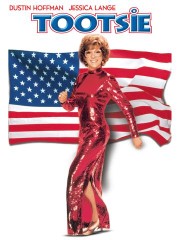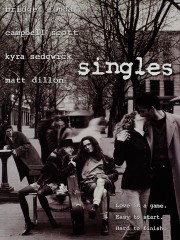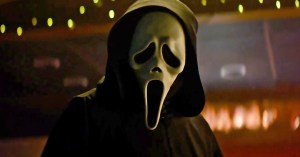Judy Greer’s Five Favorite Films
The Arrested Development and Ant-Man co-star got help from Jason Reitman and Mitch Hurwitz on her directorial debut, and had "so much fun" on the set of Halloween.

(Photo by Noam Galai/Getty Images)
Accomplished character actor Judy Greer‘s filmography is, fittingly enough, best summed up by the title of her 2014 autobiography: I Don’t Know What You Know Me From: Confessions of a Co-Star. You may recall her as the recipient of an amazing makeover in Jawbreaker, as the timid, lonely office girl from What Women Want, or in the recurring role as George Sr.’s awkward, unhinged assistant Kitty Sanchez in Arrested Development, all early in her career. That was before she moved on to stealing scenes in sitcoms like Modern Family and It’s Always Sunny in Philadelphia and landing supporting roles in movies like The Descendants, 2013’s Carrie, and franchises as big as Planet of the Apes, Jurassic World, and the Ant-Man movies. Later this year, Greer will even appear alongside Jamie Lee Curtis as Laurie Strode’s daughter in Halloween.
This week, however, marks another milestone for Greer, as she makes her directorial debut with A Happening of Monumental Proportions. It’s an ensemble comedy of intersecting stories that take place over the course of an elementary school’s Career Day, with an impressive cast that includes Common, Allison Janney, Jennifer Garner, John Cho, Kumail Nanjiani, Bradley Whitford, Katie Holmes, and Rob Riggle, just to name a few. She spoke with RT and offered up her Five Favorite Films, then talked about why she could never direct herself, explained how helpful Jason Reitman and Mitch Hurwitz were to her, and even gave us a taste of what it was like on the set of Halloween.
Ryan Fujitani for Rotten Tomatoes: So I understand it was your manager who really pushed for you to make the jump behind the camera and move into directing. What was it about this project that made you think, “You know what? This is the one I’m going to direct?”
Judy Greer: Well, I loved the script. I mean, I have to give up a year of my life to direct a movie, and not make any money doing it, and it has to be something… My manager has always said this, and he still does: If you’re not dying to tell this story, it’s not worth it. And he doesn’t even mean financially; he means heart and soul. It’s such an undertaking to direct independent movies, so, in that sense, it has to really be something I can’t not do.
That was how I felt when I read this script, finally. I had read several, and a lot of the ones that came to me wanted me to also play roles in them, and I really didn’t want to do that. I did not want to have to direct myself. I didn’t want to have to be directing other actors but then also being like, “Yeah, but I nailed that scene, so we can move on.” I just felt so weird about it. And I’ve worked with people who’ve done it, and they do it well, and it doesn’t bother me. I just couldn’t do it. I couldn’t look at Common and say, “Can you do it again, but like, this time do it like this?” I feel like I would have had to tell myself my direction out loud so he could hear it.
Also, the second answer is that I got people way more famous and cool than me to be in my movie, so it was great, because I didn’t even have to. I was like, “Worst case scenario, I could play these five roles. But, I don’t know, if Allison Janney’s going to do it, then why would I ever?” So they made it easy for me. I’m legit impressed by people who can, but I couldn’t.
RT: You’ve also said that you’re drawn to stories that take place in “normal” office settings and things like that, because you’ve never quite had a job like that. What’s the trick to making something that’s ostensibly normal and familiar to most audiences into something that’s special and engaging, but also still relatable, if that makes sense?
Greer: No, I think I know what you mean. Yeah, I think what you’re saying is, how do you not make it boring? Well, I don’t know, maybe you’re not. But Office Space, maybe if I could list a top 10 list, would maybe be on it. I loved that movie, and I was so intrigued, because I’ve always been fascinated with a schedule. Like, I’ve never had a schedule. It’s always different and changing, and I’m in different places, and I’m doing different things. I think the grass is always greener, a little bit, with having a regular job and a regular life, where I thought, “Oh, you can actually plan a vacation and take it? That would be cool. My husband would love that.”
But I just thought it was cool to see the ins and outs of that world, and I hoped I made it interesting and fascinating. What I really wanted to do was, I have this fantasy about showing how these big buildings, they’re these big businesses and cubicles, and you have to walk so far to just get anything done. You have to walk so far to just go to the bathroom and to get a cup of coffee. And if you’re running to someone’s office, basically it’s like half your day is just walking around these buildings. It’s just my fantasy of what it’s like. Some of my friends have said, “No, no one has that much space.” But I’m like, “I don’t know. In my world, they do, and that’s the story I want to tell.” Direct your own movies! But yeah, I was always intrigued by it.
RT: If it’s any consolation, a lot of my day is actually very much like that, so you kind of nailed it for me, anyway.
Greer: Oh, I’m sorry? [laughs]
RT: You’ve been part of some really big franchises, and you’ve worked with a lot of amazing people, both in front of and behind the camera. Specifically with regard to directors, is there one in particular who especially inspired your own approach, or from whom you felt like you learned a significant deal?
Greer: Well, I learned a lot from Jason Reitman, because he is my friend and he was nice enough to go to lunch with me before I directed my movie, and sat down with me at Hugo’s for like two hours, where I had a notebook and a pen, and he told me things, and I wrote as much as I could down. He was really inspiring in that way. Plus, I love working with him. I love the way he directs, and I love his movies and the stories he chooses to tell. I have so much respect for him. I also got so much help from, obviously Paul Weitz, who’s an executive producer of my movie. He was someone who was a total mentor. But kind of outside the process, I should say, it was Jason Reitman, who didn’t have to ever do anything or sit down with me.
Paul was great. I mean, Paul helped me all along the way, because he was a part of the process from the very beginning, and we started by just going over the script together. Then we talked about casting. Then we talked about crew to hire. Then we talked about edit, and what I should do on set. I’ve sort of taken him for granted because he’s a producer on the movie, and haven’t really spoken as much about him as I should have. But definitely him. Definitely him.
And also, towards the end in the editing process, you know who I feel like I couldn’t have finished the movie without was Mitch Hurwitz. You know, he’s just always been there for me, throughout my career, when I’ve needed help or advice. With this, you know, we got to a point in the editing room where we were like, “I don’t know what else to do. And there are some things that need to be fixed.” And I sent him a link, and he watched it and gave me the greatest notes. It was really just something that was so above and beyond. I just wanted a new, fresh pair of eyes, someone who, I thought, was clearly a comedic genius. But the thing about Mitch that I don’t know if people all know is what a giant heart he has. You know, my movie ended up, I think, having a lot of heart to it. I had plenty of jokes — a lot of jokes had to end up being cut — but I wanted to make sure I was telling the right story, too. So Mitch was a real asset.
RT: Speaking of jokes, you’ve proven how reliably funny you are in the past, and now you’re directing this kind of quirky comedy. What do you think about possibly directing in other genres? Maybe drama, or horror?
Greer: Definitely, horror would be dope. That would be so fun, and I would never have said that until working with David Gordon Green on Halloween. I had so much fun on set. We had the best time. And again, that could just be him, because he just wants to have fun and laugh. He always says, “I just want to party,” and he doesn’t mean drink. He wants to just have fun all the time. Like, “Let’s party, let’s party! We have to party!” It’s so fun. He’s like, “Oh Judy, wouldn’t it be cool if you did this? What if you did that?” It was so fun. And after doing that, I thought, “Oh my God, this is a horror movie? I want to direct a horror movie. That would be cool.”
I would also say that working with Peyton Reed on Ant-Man was so cool, because… Again, Paul [Rudd] is just hilarious, and he’s never not funny. But to make that kind of genre movie, and make it as fun and funny as I think Ant-Man, both of them, turned out to be, seems really fun, too. As far as drama’s concerned, I just don’t know. I love acting in dramas, and I love watching dramas, but I get nervous because I feel like I have a tendency to — you’ll never believe this, maybe — but I can go to pretty dark places, and I would be nervous about tone. Tone is so important. I’m so constantly feeling heartbroken by humanity, and especially now. But I’m never going to say no. I read all kinds of scripts.
RT: You mentioned Halloween, and I feel like I can’t not ask about it…
Greer: Dude…
RT: Without spoiling anything, is there something like a passing of the torch going on?
Greer: I don’t know, man. I don’t know what I’m even allowed to say. Let me just say that if I could do these movies with Jamie Lee Curtis and Andi Matichak, if we could make these movies, this gang of, as Jamie Lee Curtis calls us, three tall women… It was so fun. I hope we get the opportunity to go back to Haddonfield, because it was… It was major. And I feel like Jamie Lee’s love and ownership — and I don’t mean it literally — of this franchise is such an inspiration. I love how seriously she and David took the telling of this story. And while it was so fun and wonderful to do, it was, I felt, such important work to get right. For the fans, you know? It’s all about the people who love it. And people love Halloween.
A Happening of Monumental Proportions opens in limited release on Friday, September 21.








